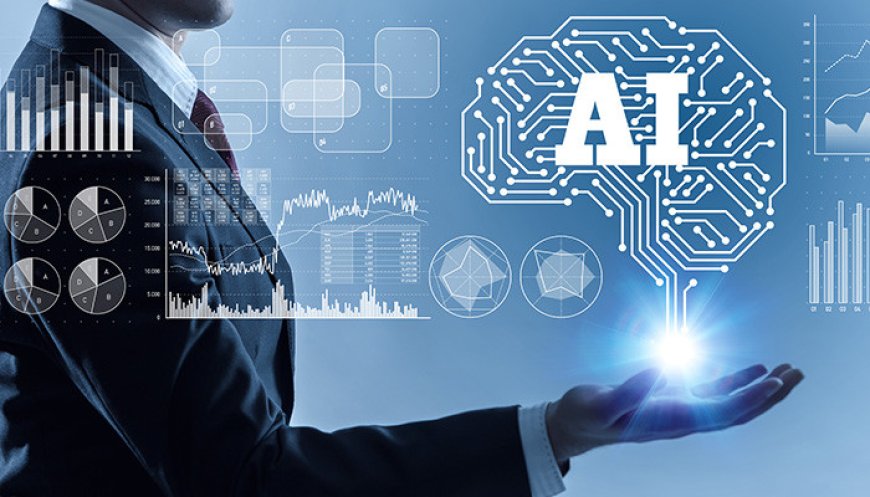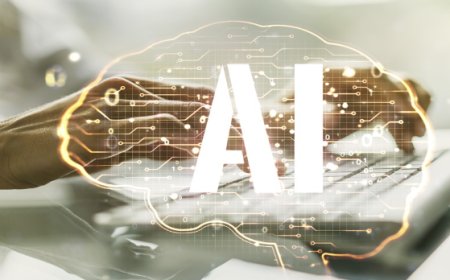Decoding the Debate: AI vs. Data Science
Explore the nuanced debate between AI and Data Science. Uncover the distinctions, applications, and synergies between these dynamic fields. Gain insights to navigate the evolving landscape of artificial intelligence and data science.

Artificial Intelligence (AI) and Data Science are two concepts that are at the forefront of modern dynamic technological terrain. The discourse surrounding Artificial Intelligence and Data Science is intensifying as more and more firms and industries adopt cutting-edge technologies. These disciplines are essential for fostering innovation and providing information for decision-making. AI is changing the way we engage with technology by enabling intelligent computers to perform jobs that humans would normally perform. In addition, Data Science, with its emphasis on extracting insights from data, enables businesses to make well-informed decisions. Their mutually beneficial partnership is transforming a range of sectors, including healthcare and finance, as businesses use AI and data science to better traverse the difficult business environment. The way we use data and intelligence to drive sustainable growth will surely change in the future as a result of the integration of these technologies.
The Rise of AI and Data Science
The surging popularity of both AI and Data Science has been evident. AI, in its broader sense, encompasses the simulation of human intelligence by machines, incorporating elements such as machine learning, natural language processing, and robotics. Conversely, Data Science focuses on gleaning insights and knowledge from data using diverse techniques and algorithms.
As organizations strive to leverage the potential of these technologies, it becomes crucial to discern their nuances and practical applications. AI, with its capability to replicate human-like cognitive functions, finds applications in diverse sectors, ranging from healthcare to entertainment. Meanwhile, Data Science plays a vital role in deciphering patterns within data, aiding businesses in making informed decisions.
The power of AI and Data Science reflects a broader trend in the tech industry. The distinctions between these fields underscore the complementary nature of their roles. AI offers the potential for automation and intelligent decision-making, while Data Science provides the tools to extract valuable insights from the vast pool of available data. As organizations grapple with the integration of these technologies, a nuanced understanding of their distinct contributions becomes essential for informed decision-making and strategic planning.
Deciphering the Corresponding Regions
The interplay between AI and Data Science introduces a layer of complexity as their domains frequently intersect, blurring the lines between their roles. AI, fundamentally, is dependent on data to refine its algorithms and enhance its decision-making capabilities. This reliance on data underscores the intrinsic connection between AI and Data Science. On the flip side, data science relies on AI algorithms to delve deeper into datasets, extracting nuanced patterns and meaningful insights that might elude traditional analytical methods.
A relevant point is raised by this symbiotic relationship: Is it acceptable to claim one is superior to the other? Rather than attempting to establish a hierarchy, the solution is to acknowledge their interconnectedness. AI greatly benefits from data science's analytical skills because it focuses on imitating human intelligence. Similar to this, data science, with its data-driven methodology, benefits greatly from the sophisticated algorithms and self-governing decision-making powers provided by AI. Instead of competing, their partnership advances technology, indicating that the real strength is in using the synergies between AI and Data Science to provide holistic insights and solutions.
Untangling the Web - Which is Better?
Determining the superiority between AI and Data Science hinges on understanding their merits and applications. Artificial Intelligence (AI) is characterized by its capacity to perform tasks requiring human-like intelligence, with strengths in autonomous decision-making and real-time analysis. AI's weaknesses may lie in the complexity of algorithm design and the need for substantial computing power.
On the other hand, Data Science focuses on extracting insights from data, excelling in areas like predictive modeling and business intelligence. Its strength lies in transforming raw data into actionable insights. Yet, Data Science's limitations may include dependence on the quality of available data and the challenge of interpreting findings.
The choice between AI and Data Science depends on the specific task or industry. AI's prowess in autonomous decision-making may suit certain applications, while Data Science's analytical strengths may be more fitting in other contexts. It's a nuanced evaluation, recognizing the distinct advantages each brings to the table.
Data Science and AI Details
Understanding the Strengths of AI
AI's strength lies in its ability to mimic human intelligence and learn from experience. Machine learning, a subset of AI, enables systems to improve performance over time without explicit programming. This proves invaluable in applications like image and speech recognition, autonomous vehicles, and personalized recommendations.
AI's effectiveness is contingent on the quality and quantity of data available. Without robust datasets, AI algorithms may falter, highlighting the symbiotic relationship between AI and Data Science.
Data Science: Revealing Insights
Data Science, while closely associated with AI, has its distinct focus on extracting meaningful insights from data. It encompasses statistical analysis, data mining, and predictive modeling. Data scientists play a pivotal role in shaping strategies, identifying trends, and aiding decision-making processes.
The strength of data science lies in its versatility—it is applicable across various industries, from healthcare to finance. By leveraging statistical techniques, data scientists transform raw data into actionable intelligence, providing a foundation for effective decision-making.
Getting Around the Business Environment: Useful Applications
AI's influence extends deeply into diverse industries, leaving a lasting impact on how they operate. Healthcare, for instance, witnesses the transformative power of AI through predictive analytics. By analyzing vast datasets, AI algorithms can identify potential diseases at an early stage, facilitating proactive and personalized patient care. Similarly, in the financial sector, AI algorithms optimize trading strategies, leveraging real-time data to make informed investment decisions.
Manufacturing experiences a paradigm shift with AI-driven automation. Intelligent systems enhance efficiency by streamlining processes and minimizing errors, ultimately leading to increased productivity. In customer service, the integration of natural language processing into chatbots revolutionizes user interactions. These AI-powered chatbots provide instant responses, improving customer satisfaction and engagement.
On the other front, Data Science emerges as a stalwart in extracting valuable insights from data. In e-commerce, data science algorithms fuel recommendation engines, elevating the user experience by suggesting products based on individual preferences. In marketing, data science plays a crucial role in targeted advertising, ensuring that messages resonate with the right audience. The healthcare sector benefits significantly from data science, employing predictive models to anticipate patient outcomes and tailor personalized treatment plans. AI and Data Science, each in their unique ways, contribute to the evolution of industries, shaping a tech-driven future.
The argument between AI and data science is not about which is better; rather, it is about realizing how complementary they are to one another. AI is great at making decisions on its own, while data science is better at revealing patterns in data. They traverse industries together, altering manufacturing, healthcare, finance, and other sectors. The secret is to recognize their unique advantages and use their combined skills to create comprehensive answers. The partnership between AI and Data Science will continue to define a tech-driven, creative future as the fields develop.











































